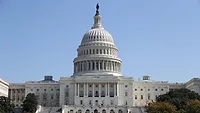Groups Urge Kennedy to Address Overuse of Antibiotics in Meat Production

Image credit: Freepik
A coalition of food safety, public health, and consumer advocacy groups are seeking the assistance and leadership of Department of Health and Human Services Secretary Robert F. Kennedy, Jr. in reducing the use of antibiotics in the meat industry.
In a letter sent on April 24, the Food Animal Concerns Trust and 36 other organizations said the U.S. could significantly reduce livestock antibiotic use and turn the tide on antibiotic resistance by effectively implementing the following four actions:
The letter cites data from the U.S. Food and Drug Administration (FDA) showing that the bulk of the medically important antibiotics used in U.S. food animals are administered in feed and water (93 percent of the total), much of this to prevent disease anticipated to occur because of unhealthy conditions on industrial animal raising operations.
“Where countries have eliminated this unnecessary use and adopted non-antibiotic methods to prevent disease, they have seen significant reductions in use and antibiotic resistance,” the letter notes.
In the U.S., the chicken industry has eliminated most preventive use of medically important antibiotics, and that sector now accounts for only 2 percent of the sales of medically important antibiotics, the letter notes.
“The current system which allows the administration of antibiotics for prevention in the absence of disease only rewards the worst actors in the industry, while putting the health of everyone at risk,” the letter states. “As HHS Secretary you should direct the FDA to begin withdrawing approval of preventive and prevention-like uses in feed and water of medically important antibiotics.”
The groups say HHS should set ambitious national targets for reducing antibiotic use and antibiotic resistance both in agriculture and human settings, adding that targets “allow federal agencies to maintain accountability to their public health mission and adequately track progress over time.”
The groups recommend a 50 percent reduction in the use of medically important antibiotics in food-producing animals, as measured in sales, from the current level by 2030.
Looking for quick answers on food safety topics?
Try Ask FSM, our new smart AI search tool.
Ask FSM →
About 30 percent of medically important antibiotics approved for use in food animals—including the drugs used in the largest amounts—have no duration of use for some indications, the letter notes. This means they can legally be given for the entire time an animal is alive, except for a few weeks at the end of the animal's life for residue withdrawal.
FDA recognizes that extended use creates an antibiotic resistance problem, and in 2016 asked for comment on requiring “limited durations of use” for antibiotics used in food animals. In late 2023, seven years later, FDA released a draft guidance which “ignored public health and instead asked drug makers to set durations long enough to cover any ‘scenarios that might sometimes be encountered in the United States,’” the letter says.
“You as HHS Secretary should direct the FDA to release a final guidance that focuses on protecting public health by making sure that all antibiotics used in food animals have sufficiently short durations of use so as to not create an antibiotic resistance problem,” the letter states.
“Food animals are the biggest consumers of medically important antibiotics in the United States. Surveillance systems are desperately needed that describe what, when, where and how these precious medicines are actually used on U.S. farms and feedlots,” the letter states.
In conclusion, the letter says: “As Secretary, you have the opportunity using existing authorities to make our food system much safer by implementing these steps to stop the overuse of antibiotics by the meat industry that is leading to the spread of deadly antibiotic-resistant pathogens.”
The letter in its entirety can be read here.








